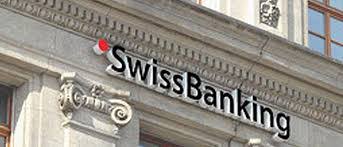Management accounting also is known as managerial accounting is a branch of accounting that involves preparing and providing timely financial information to managers so that they can make informed operational decisions.
Features of Managerial Accounting
The nature/characteristics of managerial accounting can be summarized as follows:
- Management accounting provides useful information to aid management in planning and decision-making.
- It does not use all of the data that financial records provide. It selects and collects only that information from various financial records to make important decisions about various aspects of the business.
- Management accounting determines the future course of a business with the help of various techniques, and shapes the future course of action.
- It establishes and analyzes the causes responsible for profit or loss by analyzing the various variables that affect the profits and profitability of a business.
- Management accounting is not subject to the rules of financial accounting. Financial accounting procedures are designed on the basis of generally accepted accounting principles.
Objectives of Management Accounting
#.1 Assistance in planning and formulating future guidelines
Administrative accounting supports the administration in the planning of business activities. Planning decides in advance what to do when to do it, how to do it, and who will do it. It includes forecasting based on available information, setting goals, setting guidelines, defining alternative approaches, and defining the program of activities to be carried out.
So planning generates smart forecasts. This forecast is based on facts. The facts are provided by previous accounts that are used to forecast future transactions. Administrative accounting supports the administration in its planning function through the budget control process.
#2. Help with the interpretation of financial information
Accounting is a technical subject and not everyone may easily understand until the user has a good level of experience. Management may not be able to use accounting information in its raw form because accounting techniques are not known.
The management accountant presents information in an understandable and non-technical manner. This will help management interpret financial data, evaluate available alternative courses of action, and assist management with decision making and desired financial outcomes.
#3. Helps control performance
Management accounting is a useful tool to control management. The entire organization is divided into responsibility centers, and each center is assigned a responsible person. You will take part in planning and preparing budgets and executing plans, and also analyze standards and variances to determine accountability.
In this way, the Management Accountant helps to control the performance of the different Responsibility Centers and takes the appropriate measures to correct adverse deviations, reviewing the budgets if necessary.
Managerial accounting supports management in locating weak points and taking corrective actions against those points that do not meet the budgeted performance. Management accounting helps management to successfully fulfill its control function through budget control and standard costing.
#4. Help organize
Therefore, the auditor recommends the use of budgeting, accountability accounting, cost control techniques, and internal financial control. All this requires an intensive study of the organizational structure. This, in turn, helps streamline the organizational structure.
#5. Helps solve strategic business problems
Whenever it is necessary to start a new business, expand or diversify the existing business, it is necessary to address and solve the strategic business problem.
Similarly, in a given situation, there are several alternatives, e.g whether labor should be replaced by machines or not, whether the sale price should be lowered or not, whether the item should be exported or not, etc., an auditor helps to solve such problems and make decisions.
He provides management with accounting data with his recommendation on which alternative is the best. The management accountant can use marginal costing, cost-benefit volume analysis, standard costing, capital budgeting, etc. to make such decisions.
Management accounting provides information to management, e.g. what business to run or how it can be run efficiently. This is the most important contribution the auditor has made.
#6. Help coordinate operations
Managerial accounting supports management in coordinating the activities of the company by first creating functional budgets and then coordinating all the activities of the company integrating all the functional budgets in the so-called master budget. Management accounting is therefore a useful tool for coordinating different business processes.
Functions of Management Accounting
The primary function of management accounting is to assist management in performing its functions effectively. The functions of management are to plan, organize, direct and control.
Management accounting is a part of accounting. It has evolved from the need to increase the use of accounting for management decision-making.
Management accounting helps in performing each of these functions in the following ways:
Provide data
Management accounting serves as a vital source of data for business planning. Accounts and documents are a repository of a large amount of data about a company’s past progress, which is essential to predicting the future.
Data modification
Management accounting modifies the rearrangement of available accounting data so that it becomes useful to management.
Modifying data into similar groups makes data more useful and understandable. The accounting data required for management decisions are properly compiled and classified.
For example, you can categorize the purchase numbers for different months to see the total purchases made during each period by product, supplier, and region.
Telecommunications
Management accounting is an important means of communication. Different levels of management (top, middle, and bottom) need different types of information.
Top management needs brief information at relatively long periods, middle management needs information regularly, lower management is interested in detailed information at short periods of time. Management accounting establishes communication within the organization and with the outside world.
Analyze and interpret data
Accounting data is analyzed in a targeted manner for effective planning and decision making. To do this, you have to present data comparatively, calculate ratios and predict potential trends.
As a means of communication
Managerial accounting provides a means of communicating management plans up, down and outward throughout the organization.
Initially, this means determining the feasibility and consistency of the different sectors of the plan. In the subsequent stages, all parties are informed of the plans that have been agreed upon and their role in these plans.
Facilitates control
Management accounting helps to translate set goals and strategies into specific goals to achieve them in a specific time and ensures that these goals are achieved efficiently. All this is possible through standard budget control and costs, which are an integral part of management accounting.
To carry out the enlisted functions effectively, you need to know the 11th commandment of business [New business rule].
Management accounting jobs
Accountants can find employment opportunities in a variety of work settings and industries. Professionals in this field are in demand in public and private corporations, non-profit organizations, and government agencies. Each company determines specific positions and responsibilities based on its business model and needs.
The main responsibilities of a management accountant depend on the size of the company, compliance and reporting requirements, and total sales. Review the following career profiles for expectations for management accounting positions representing entry-level, mid-level, and managerial positions.
Financial analyst
Financial analysts work in a variety of industries, from international corporations and insurance companies to financial institutions and non-profit organizations. You will often report to a senior accountant or finance manager. Risk analysts, accountants, and portfolio managers have similar roles and responsibilities.
Budget analyst
Budget analyst positions can be found in a wide variety of companies and organizations, and at all levels of government. They often report to accounting or finance managers. Job titles with similar responsibilities include cost estimators, budget accountants, and management analysts.
Accounting manager
Accounting managers work in a variety of settings, from retail and healthcare to education and non-profit organizations. This role generally reports to a senior position, eg. Eg B. a CFO or corporate controller. Job titles with responsibilities similar to those of an accounting manager include accounting manager, accounting manager, and senior accountant.
Regulator
Controller positions can be found in commercial settings, nonprofit organizations, and government agencies. The area of responsibility depends on the size of the company and its accounting. Tasks and expectations are similar to other positions such as finance manager, chief accounting officer, corporate controller, and controller.
Chief Financial Officer (CFO)
CFOs are senior executives in small and large companies with responsibilities varying depending on staff size and budget, and the nature of the company’s programs, products, and services. Similar roles and job titles include treasurer, chief financial officer, and vice president of finance.
Management Accounting Examples
Princeton is the managerial accountant of a small consulting firm. He must create a managerial accounting report for the business. He must attack management accounting from a strategic approach. Here is the list of tasks that Princeton has come up with:
- Income statement reporting
- Preparing cash flow statements
- Budgeting
- Calculating changes in stockholder equity
- Preparing taxes for the organization
When Princeton is finished, the board of directors loves his work. He has made the right decision. By truly understanding his role in the company, Princeton has secured a professional name.
If you want to learn more financial leadership skills, read FINANCIAL MANAGEMENT: A Comprehensive Guide with Practical Examples (+ free PDFs).
Management Accounting Books
The following is the review of best selling managerial accounting book of all time, and we things you should have some of them if you are looking for the material accounting book.
- Managerial Accounting By Ray Garrison
- Management Accounting: Principles & Practice
- Cost Accounting By Charles T. Horngren
- Real Numbers Management Accounting in a Lean Organization by- Jean E. Cunningham and Orest Fiume
- Advanced Management Accounting by- Robert Kaplan and Anthony A. Atkinson
1. Managerial Accounting By Ray Garrison
Ray Garrison’s publication is one of the best sellers in the managerial accounting categories. The major topics of this book are covering the principle and importance of managerial accounting at the first capture.
The book then deep detail in job costing, process costing, cost volume probabilities relationship, standard costing, price setting, and many others managerial accounting topics.
2. Management Accounting: Principles & Practice
This book covers the scope and the nature of management accounting principles and processes of accounting, decision making with the help of cost analysis, cost inventory, costing of products, financial statement analysis, ratio analysis and much more.
3.Cost Accounting By Charles T. Horngren
Cost Accounting By Charles T. Horngren is a highly rated managerial accounting book that benefits both the leadership in the management team and staff in accounting departments.
It covers the major topics in managerial and cost accounting. Those include standard costing, ABC costing, pricing, budgeting, cost variance analysis, and many more.
4. Real Numbers Management Accounting in a Lean Organization by- Jean E. Cunningham and Orest Fiume
The authors of this book have all been ex-chief financial executives of their respective organizations. In They clearly focused on how the subject has developed to this point, and management can restore simplicity and clarity in business, especially in a lean business.
They further described their personal experiences with the whys and hows of lean accounting in this book. The model of management accounting described in this book show the ways true profit potentials of an organization can be unlocked.
5. Advanced Management Accounting by- Robert Kaplan and Anthony A. Atkinson
This book covers major cost management issues faced by big companies across the globe. Robert Kaplan and Anthony A. Atkinson included an adjustable approach to the topics of advanced management through systematic accounts management. The chapters of this book are accompanied by performance evaluations and incentives in detail by using modern approaches.
Cash Management Accounting
Cash management is the process of collecting and managing cash flows. It is important to both individuals and businesses. For people, cash is also essential for financial stability, although it is also generally considered part of an overall portfolio of assets. In business, it is a key component of a company’s financial stability. The objective of cash management includes:
- Cash management is useful for creating cash budgets and making cash forecasts.
- Helps determine the minimum balance to maintain.
- It is used to balance liquidity and profitability.
- Determination of opportunity costs and corresponding investment.
- Reduce costs;
Management Accounting Institutes
Here are some more good schools for managerial accounting:
- Institute of Management Accountants(IFAC)
- Chartered Institute of Cost and Management Accountants (CICMA)
- Institute Of Management Accountants (IMA)
Finance and Management Accounting
Financial accounting and corporate accounting are the two most important branches of the accounting discipline. Despite the many similarities in approach and use, there are significant differences between the general ledger and corporate accounting. These differences mainly affect compliance, accounting standards, and target groups.
The difference between financial accounting and management accounting is as follows.
- Managerial accounting is the practice of identifying, measuring, analyzing, interpreting, and communicating financial information to managers in order to pursue a company’s goals.
- Financial accounting includes the recording, summarizing, and reporting of the transaction and economic flow resulting from business operations over a certain period of time to the public or the regulatory authorities.
- Corporate accounting differs from the general ledger in that the purpose of corporate accounting is to help internal users make informed business decisions.
To successfully carry out a managerial accounting role, you have to understand Financial Risk Management. Here is all you need to know (+practical examples)
Related Articles
- Financial Intelligence: Babysteps to Proper Mastery (+ How to guide & Detailed courses)
- What Is DEGREE OF FINANCIAL LEVERAGE: Overview, Formular, Importance
- Personal Finance: Basics, Importance, Types, Management (+Free Softwares)
- FINANCIAL RESOURCES: 7 Best Sources too look out for in 2023 (+ Detailed Guide)
- Financial Risk Management: All you need to know (+practical examples)
- GENERAL LEDGER: Easy Templates, Examples, And all you need (+ Free pdfs)






